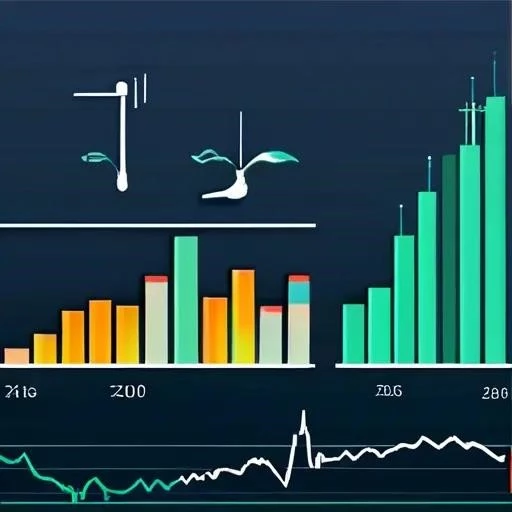Finding the perfect new car can feel like navigating a complex maze, filled with overwhelming choices and conflicting information. The digital age offers a powerful tool to simplify this process: the new car search engine. These sophisticated platforms aggregate data from manufacturers, dealerships, and independent reviewers, presenting it in an accessible and user-friendly format. На странице https://example.com вы найдете множество полезных ресурсов, которые помогут вам сделать осознанный выбор при покупке нового автомобиля. This guide aims to provide a comprehensive overview of how to effectively utilize a new car search engine, maximizing its potential to streamline your car-buying journey and ensuring you drive away with the vehicle that perfectly meets your needs and budget.
Understanding the Power of New Car Search Engines
New car search engines are more than just glorified websites; they are sophisticated tools designed to empower you with information. They allow you to:
- Compare Models: Side-by-side comparisons of specifications, features, and pricing.
- Refine Your Search: Filter results based on your specific criteria, such as budget, fuel efficiency, or desired features.
- Read Reviews: Access expert reviews and owner feedback to gain valuable insights.
- Find Local Deals: Locate dealerships in your area offering the best prices and incentives.
- Estimate Costs: Calculate monthly payments, insurance rates, and other associated expenses.
By leveraging these capabilities, you can significantly reduce the time and effort required to research and compare new cars, ultimately leading to a more informed and satisfying purchase.
Key Features to Look For in a New Car Search Engine
Not all new car search engines are created equal. Some offer more comprehensive features and a more user-friendly experience than others. When evaluating different platforms, consider the following:
- Comprehensive Database: Does the engine include a wide range of makes, models, and trim levels? A larger database provides a more comprehensive overview of the market.
- Advanced Filtering Options: Can you easily filter results based on your specific needs and preferences? Look for options such as price range, fuel economy, body style, engine type, and specific features.
- Detailed Specifications: Does the engine provide comprehensive specifications for each vehicle, including engine performance, dimensions, safety features, and standard equipment?
- User Reviews and Ratings: Are user reviews and ratings readily available and easy to access? This can provide valuable insights into the real-world ownership experience.
- Expert Reviews: Does the engine aggregate expert reviews from reputable automotive publications? Expert reviews can provide unbiased assessments of vehicle performance, handling, and overall value.
- Price Transparency: Does the engine provide clear and accurate pricing information, including MSRP, invoice price, and potential dealer incentives?
- Local Dealership Information: Can you easily locate dealerships in your area and view their inventory and contact information?
- Mobile Compatibility: Is the engine accessible and user-friendly on mobile devices? This allows you to research cars on the go.
- Customization Options: Can you save your searches, create comparison lists, and receive alerts when new deals become available?
- Ease of Use: Is the engine intuitive and easy to navigate? A user-friendly interface can significantly enhance your research experience.
Step-by-Step Guide to Using a New Car Search Engine Effectively
Now that you understand the power and features of new car search engines, let’s delve into a step-by-step guide to using them effectively:
1. Define Your Needs and Priorities
Before you even begin browsing, take some time to define your needs and priorities. Consider the following questions:
- What is your budget? Establish a realistic budget and stick to it. This will help you narrow down your search and avoid overspending.
- What type of vehicle do you need? Consider your lifestyle and transportation needs. Do you need a spacious SUV for your family, a fuel-efficient sedan for commuting, or a rugged truck for work?
- What features are essential to you? Make a list of the features that are most important to you, such as safety features, technology features, or comfort features.
- What is your desired fuel economy? If fuel efficiency is a priority, research models with high MPG ratings.
- How many passengers do you need to accommodate? Consider the number of passengers you typically transport and choose a vehicle with adequate seating capacity.
2. Choose a Reputable New Car Search Engine
Research and select a reputable new car search engine that offers the features and information you need. Consider the factors listed above when making your decision. Some popular options include:
- Edmunds
- Kelley Blue Book (KBB)
- Car and Driver
- Motor Trend
- U.S. News & World Report Cars
3. Enter Your Search Criteria
Once you’ve chosen a search engine, enter your search criteria based on your needs and priorities. Be as specific as possible to narrow down your results and find the vehicles that best match your requirements. Use the filtering options to specify your desired price range, body style, fuel economy, features, and other criteria.
4. Compare Models Side-by-Side
After entering your search criteria, the search engine will display a list of matching vehicles. Use the side-by-side comparison feature to compare the specifications, features, and pricing of different models. Pay close attention to the details that are most important to you, such as engine performance, safety features, and fuel economy.
5. Read Reviews and Ratings
Once you’ve narrowed down your list of potential vehicles, read reviews and ratings from both experts and owners. Expert reviews can provide unbiased assessments of vehicle performance, handling, and overall value, while owner reviews can offer valuable insights into the real-world ownership experience. Look for common themes and patterns in the reviews to get a better understanding of the pros and cons of each vehicle.
6. Research Pricing and Incentives
Before you visit a dealership, research pricing and incentives to get an idea of what you should expect to pay. Use the search engine to find the MSRP (Manufacturer’s Suggested Retail Price), invoice price, and any available dealer incentives. Keep in mind that the actual price you pay may vary depending on factors such as location, demand, and negotiation skills.
7. Find Local Dealerships and Check Inventory
Once you’ve identified the vehicle you want to purchase, use the search engine to find local dealerships and check their inventory. Contact the dealerships to confirm availability and schedule a test drive.
8. Visit Dealerships and Take Test Drives
Visiting dealerships and taking test drives is an essential part of the car-buying process. This allows you to experience the vehicle firsthand and determine if it meets your needs and expectations. During the test drive, pay attention to the vehicle’s performance, handling, comfort, and features. Ask the salesperson any questions you may have and don’t be afraid to negotiate the price.
9. Negotiate the Price
Negotiating the price is a crucial step in the car-buying process. Use the information you gathered during your research to negotiate a fair price with the dealership. Be prepared to walk away if you’re not satisfied with the offer.
10. Secure Financing
If you need financing, shop around for the best interest rate and terms. Compare offers from different banks, credit unions, and dealerships. Be sure to read the fine print and understand all the terms and conditions before signing any loan documents.
11. Finalize the Purchase
Once you’ve negotiated the price, secured financing, and reviewed all the paperwork, you’re ready to finalize the purchase. Carefully review all the documents before signing them and make sure you understand all the terms and conditions. Congratulations, you’re now the proud owner of a new car!
Advanced Tips for Optimizing Your New Car Search
Beyond the basic steps, here are some advanced tips to help you get the most out of your new car search engine:
- Use Multiple Search Engines: Don’t rely on just one search engine. Compare results from multiple platforms to get a more comprehensive overview of the market.
- Set Price Alerts: Many search engines allow you to set price alerts for specific models. This can help you track price fluctuations and identify potential deals.
- Explore Certified Pre-Owned Options: Consider exploring certified pre-owned (CPO) options, which offer a balance of value and peace of mind. CPO vehicles typically undergo a thorough inspection and come with a warranty.
- Research Reliability Ratings: Check reliability ratings from sources like J.D. Power and Consumer Reports to identify models with a history of dependability.
- Consider Total Cost of Ownership: Don’t just focus on the purchase price. Consider the total cost of ownership, which includes factors such as fuel costs, insurance rates, maintenance expenses, and depreciation.
- Take Advantage of Online Tools: Many search engines offer online tools such as payment calculators, trade-in estimators, and insurance quote tools. These tools can help you estimate your costs and make informed decisions.
- Be Patient: Don’t rush into a purchase. Take your time to research your options, compare models, and negotiate the price. The more time you invest in the process, the more likely you are to find the perfect car at the right price.
Common Mistakes to Avoid When Using a New Car Search Engine
While new car search engines are powerful tools, it’s important to avoid common mistakes that can lead to poor decisions:
- Relying Solely on Online Information: Don’t rely solely on online information. Always visit dealerships and take test drives to experience the vehicle firsthand.
- Ignoring Expert and Owner Reviews: Don’t ignore expert and owner reviews. These reviews can provide valuable insights into the real-world ownership experience.
- Focusing Only on the Purchase Price: Don’t focus only on the purchase price. Consider the total cost of ownership, which includes factors such as fuel costs, insurance rates, and maintenance expenses.
- Being Impulsive: Don’t make impulsive decisions. Take your time to research your options and negotiate the price.
- Failing to Negotiate: Don’t be afraid to negotiate the price. Dealerships are often willing to offer discounts and incentives to close a deal.
- Skipping the Test Drive: Never skip the test drive. This is your opportunity to experience the vehicle firsthand and determine if it meets your needs and expectations.
- Ignoring Safety Features: Don’t ignore safety features. Prioritize safety when choosing a new car.
- Overlooking Fuel Efficiency: Don’t overlook fuel efficiency. Choose a vehicle with good MPG ratings to save money on fuel costs.
- Ignoring Maintenance Costs: Don’t ignore maintenance costs. Research the maintenance schedule and potential repair costs before making a purchase.
Remember that careful planning and research are key to a successful car-buying experience. By avoiding these common mistakes, you can increase your chances of finding the perfect car at the right price.
New car search engines are constantly evolving, with new features and capabilities being added all the time. Stay up-to-date on the latest trends and technologies to maximize your research efforts. https://example.com is a great resource to stay informed about automotive industry updates and consumer insights.
The Future of New Car Search Engines
The future of new car search engines is bright, with continued advancements in technology and user experience. We can expect to see even more sophisticated filtering options, more personalized recommendations, and more seamless integration with dealership websites. Augmented reality (AR) and virtual reality (VR) technologies may also play a role, allowing consumers to virtually explore vehicles from the comfort of their own homes.
Artificial intelligence (AI) is also poised to transform the new car search experience. AI-powered chatbots can provide personalized assistance and answer questions in real-time, while machine learning algorithms can analyze user data to provide more relevant recommendations. As AI becomes more sophisticated, it will be able to predict consumer preferences and proactively suggest vehicles that meet their needs.
Furthermore, the increasing adoption of electric vehicles (EVs) will likely lead to the development of specialized search engines that focus specifically on EVs. These engines may provide information on charging infrastructure, battery range, and government incentives, helping consumers make informed decisions about transitioning to electric mobility. The future of car buying is undoubtedly digital, and new car search engines will continue to play a central role in the process.
Remember to visit https://example.com for additional resources.
Описание: Найдите идеальный автомобиль с помощью эффективной системы поиска новых автомобилей. Сравните модели, узнайте цены и найдите ближайших дилеров.





